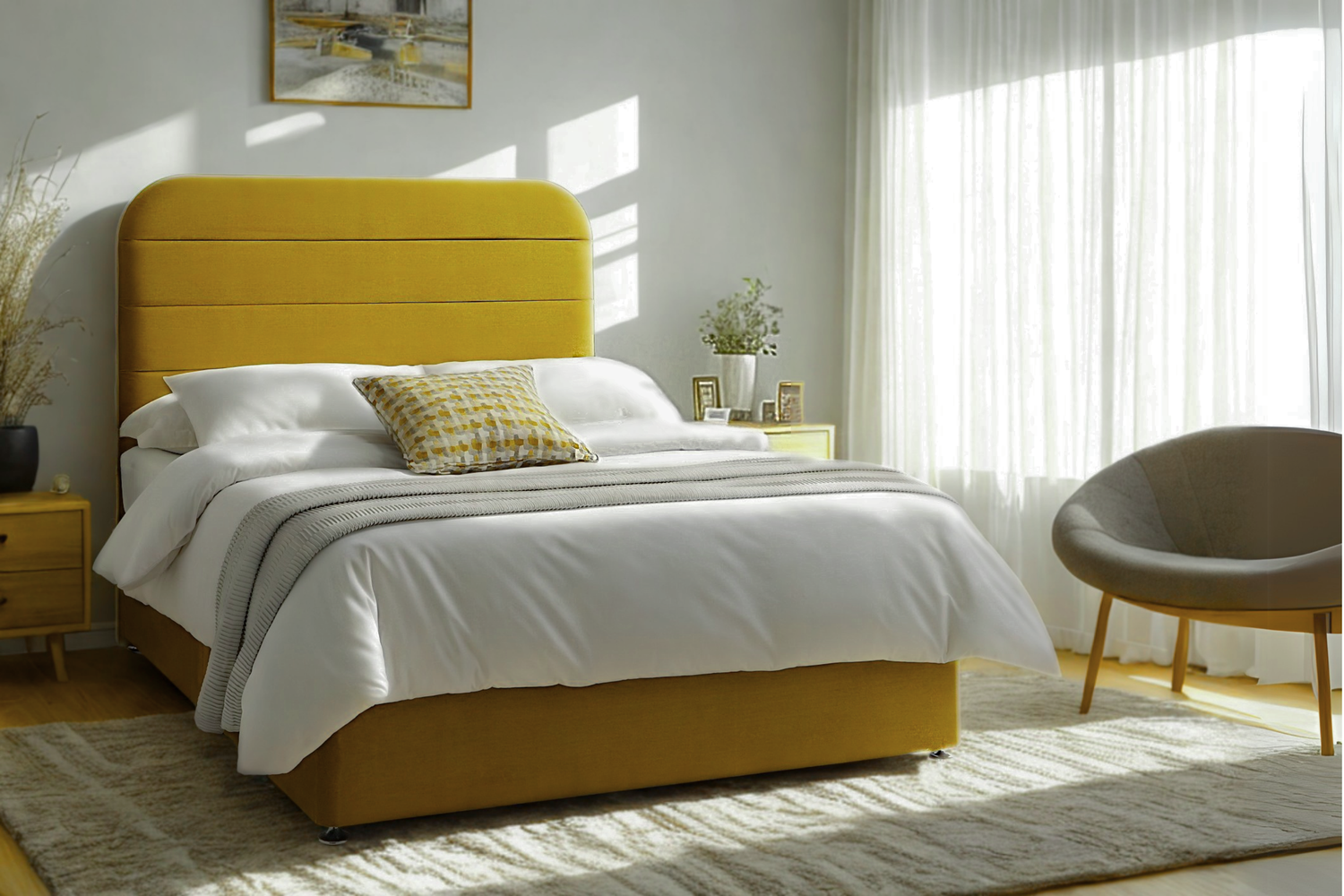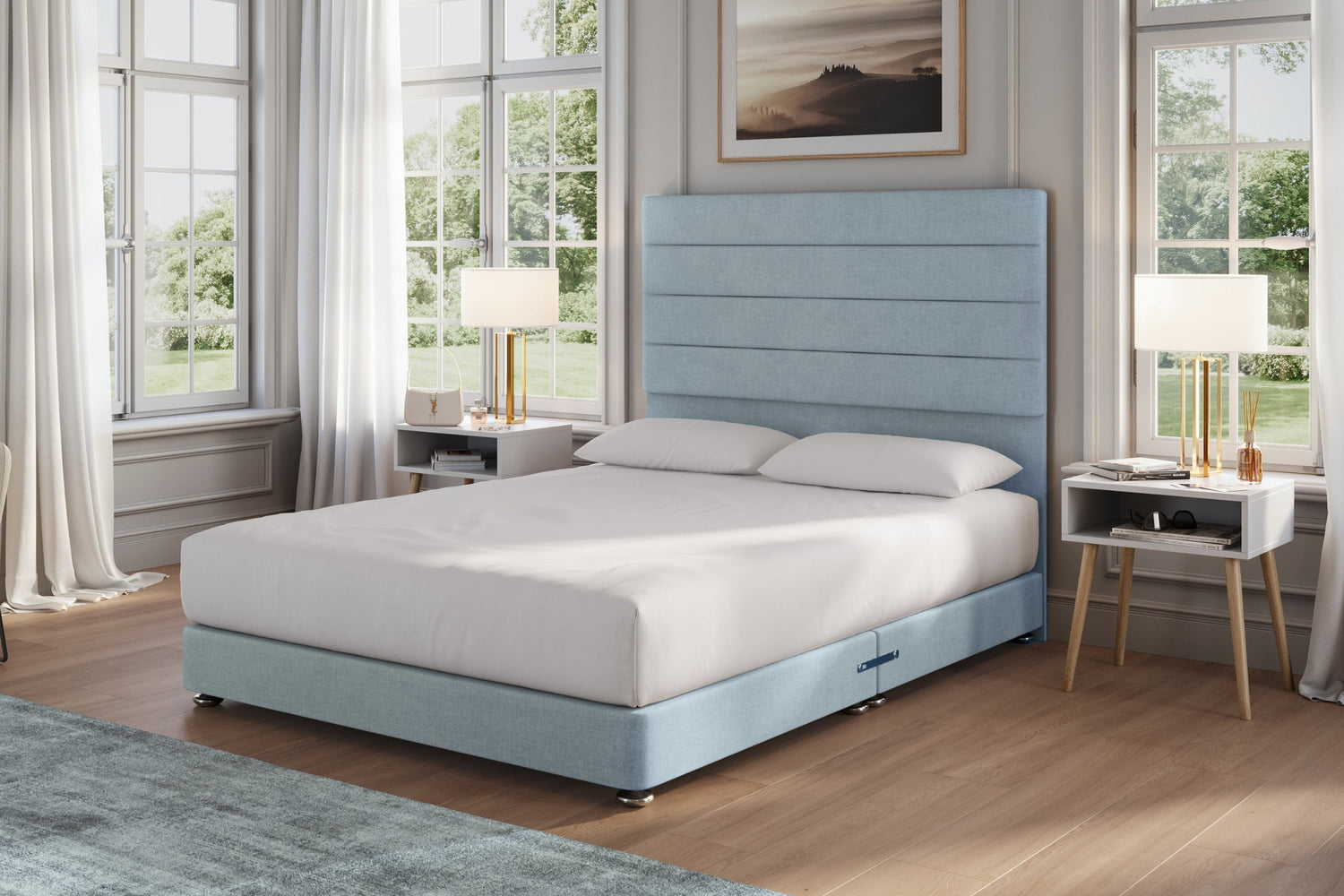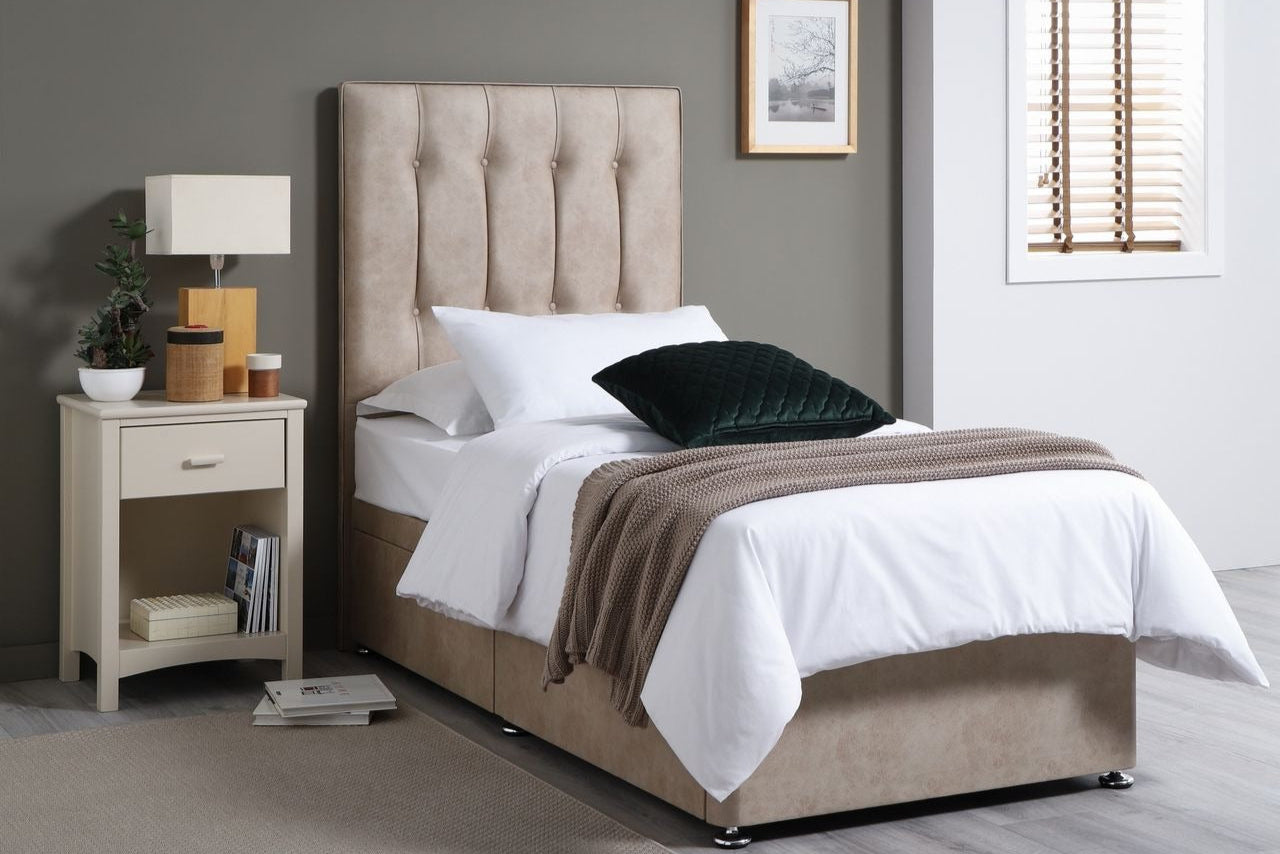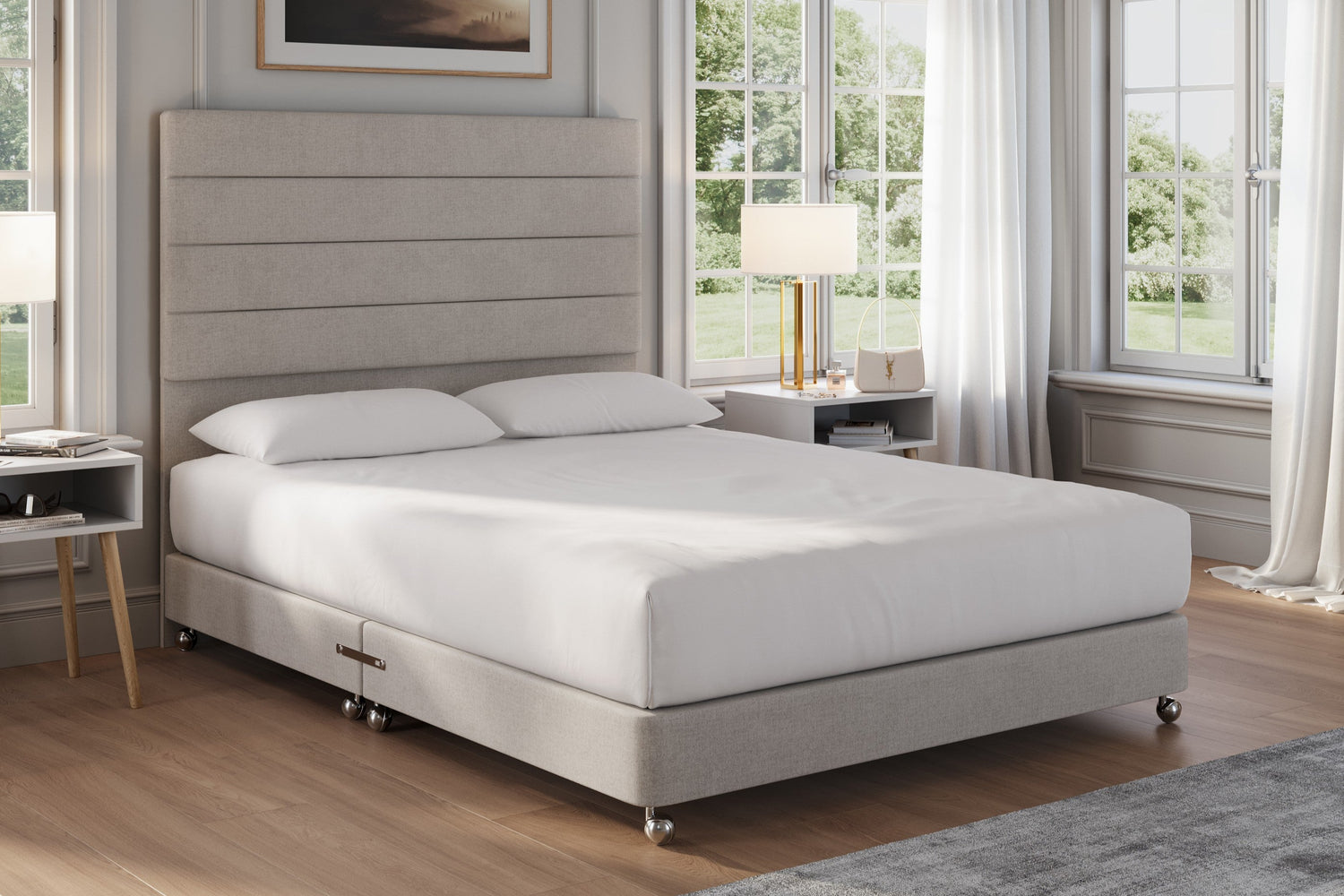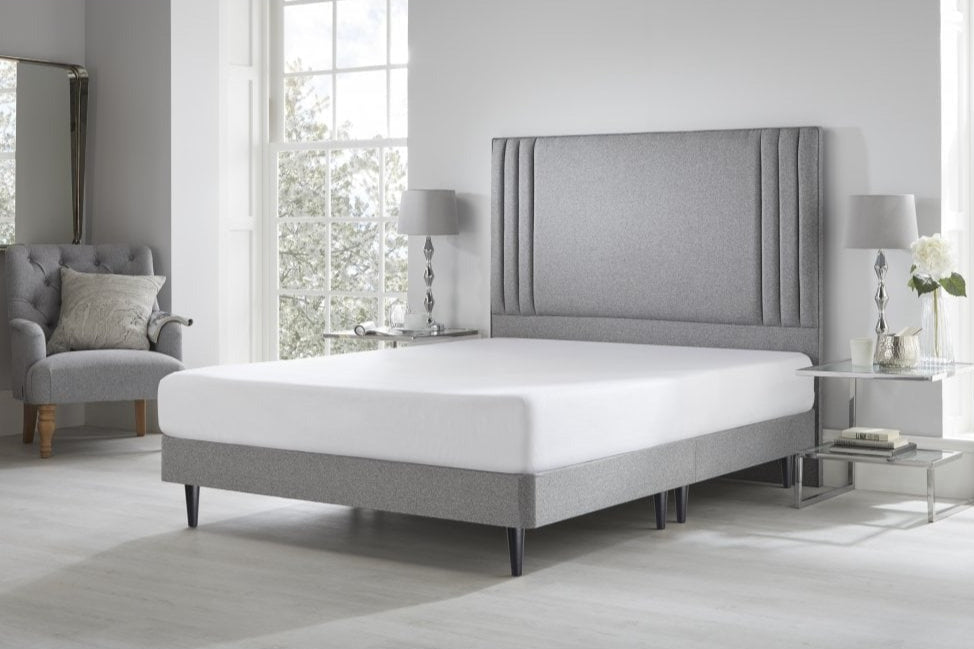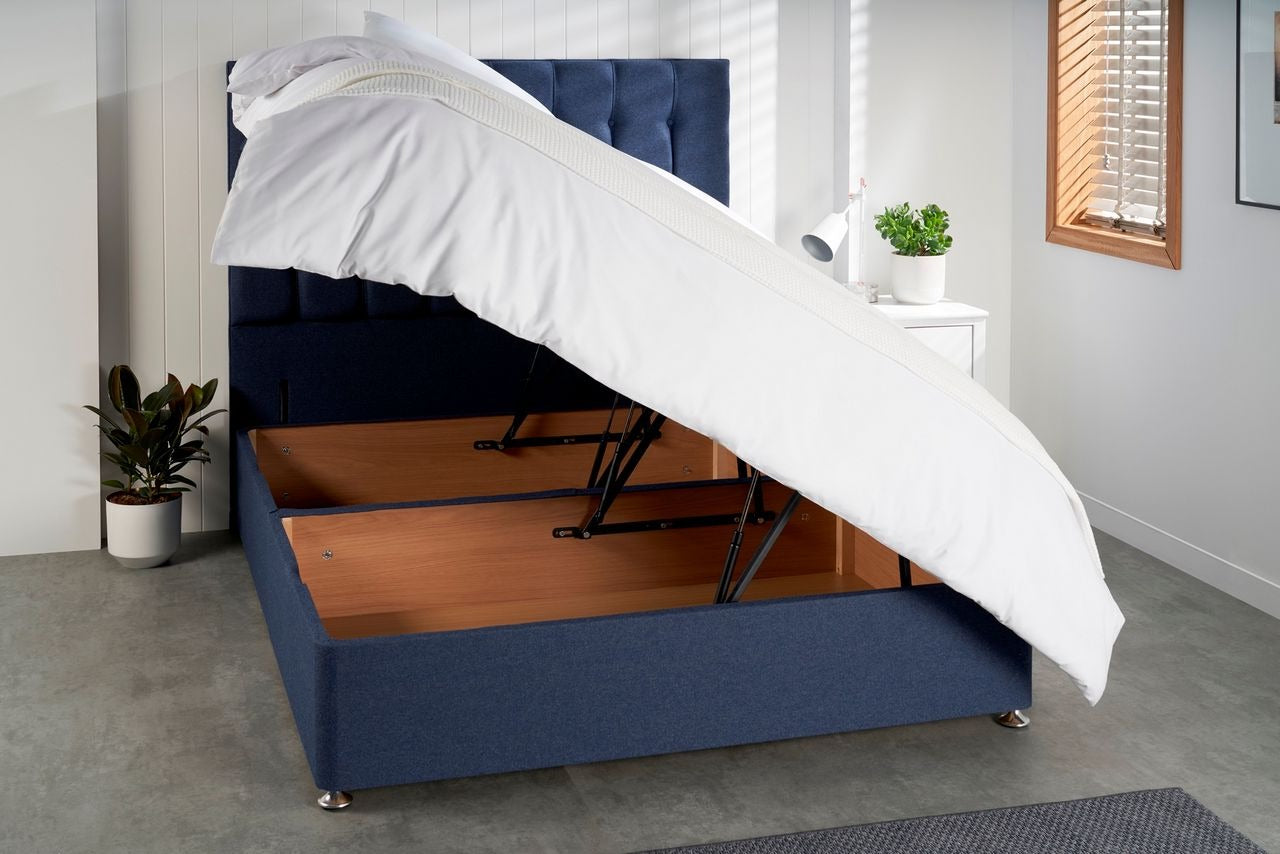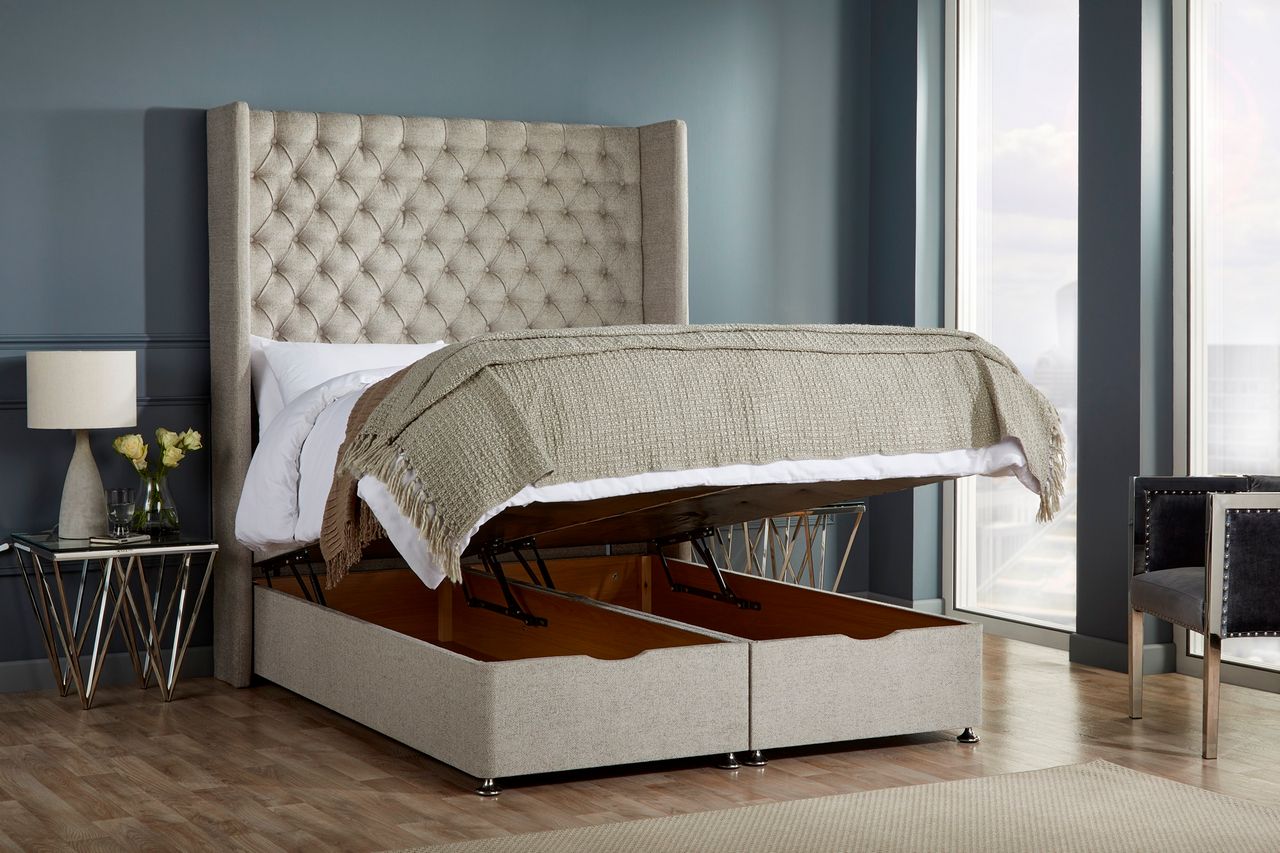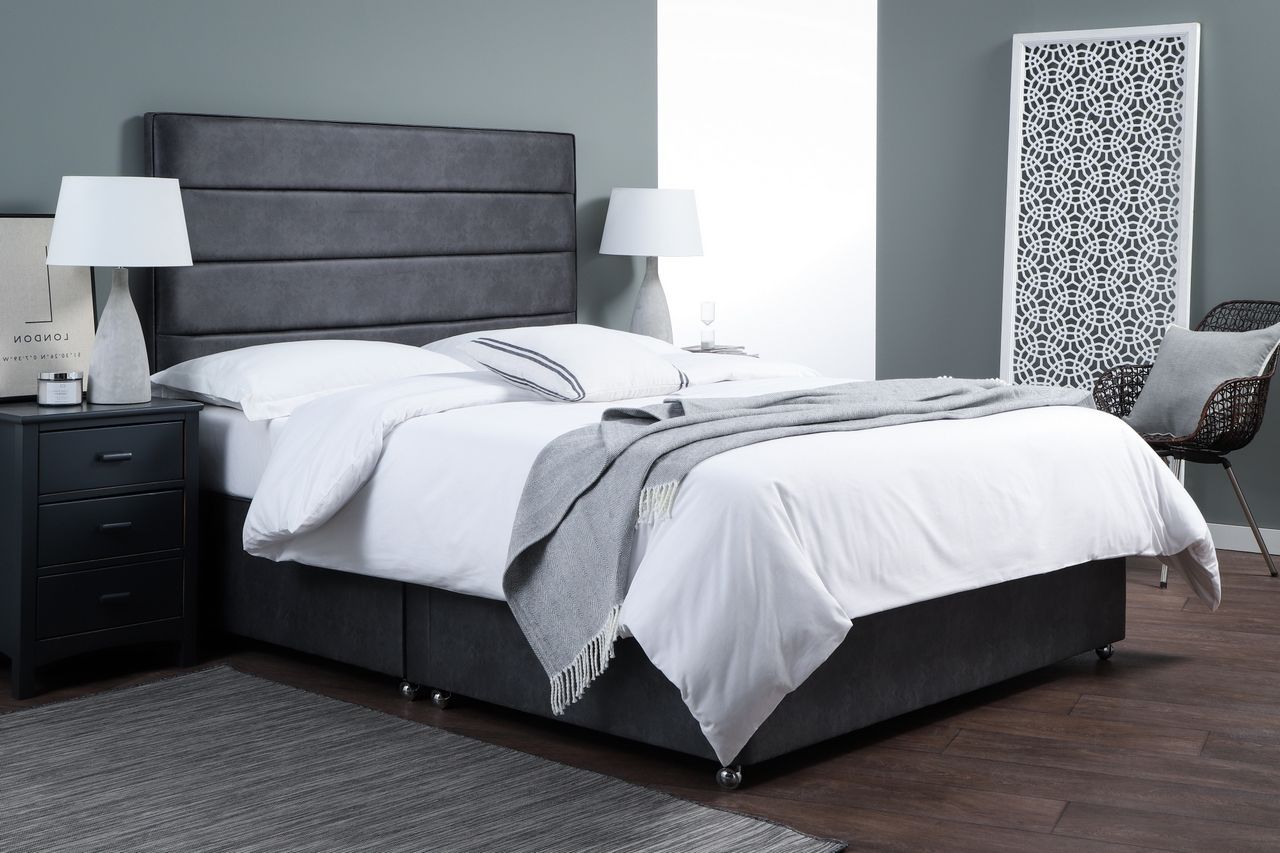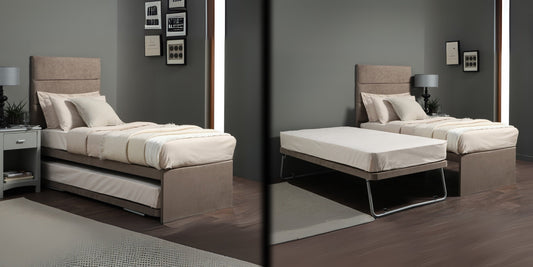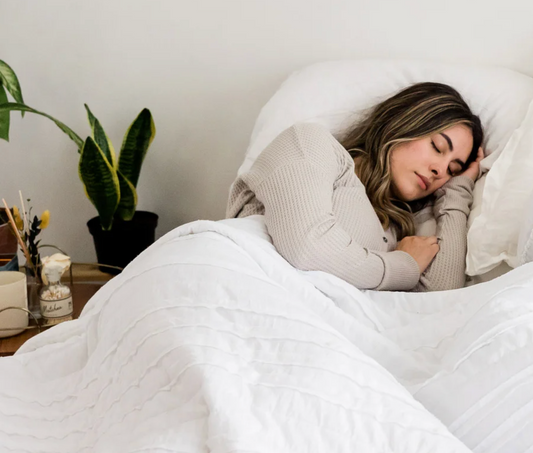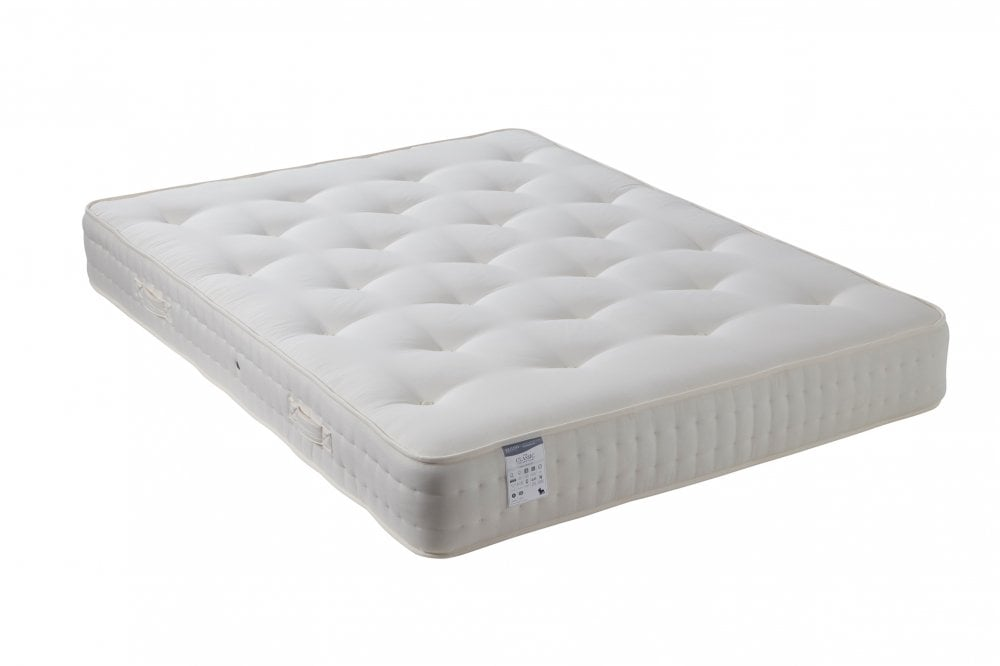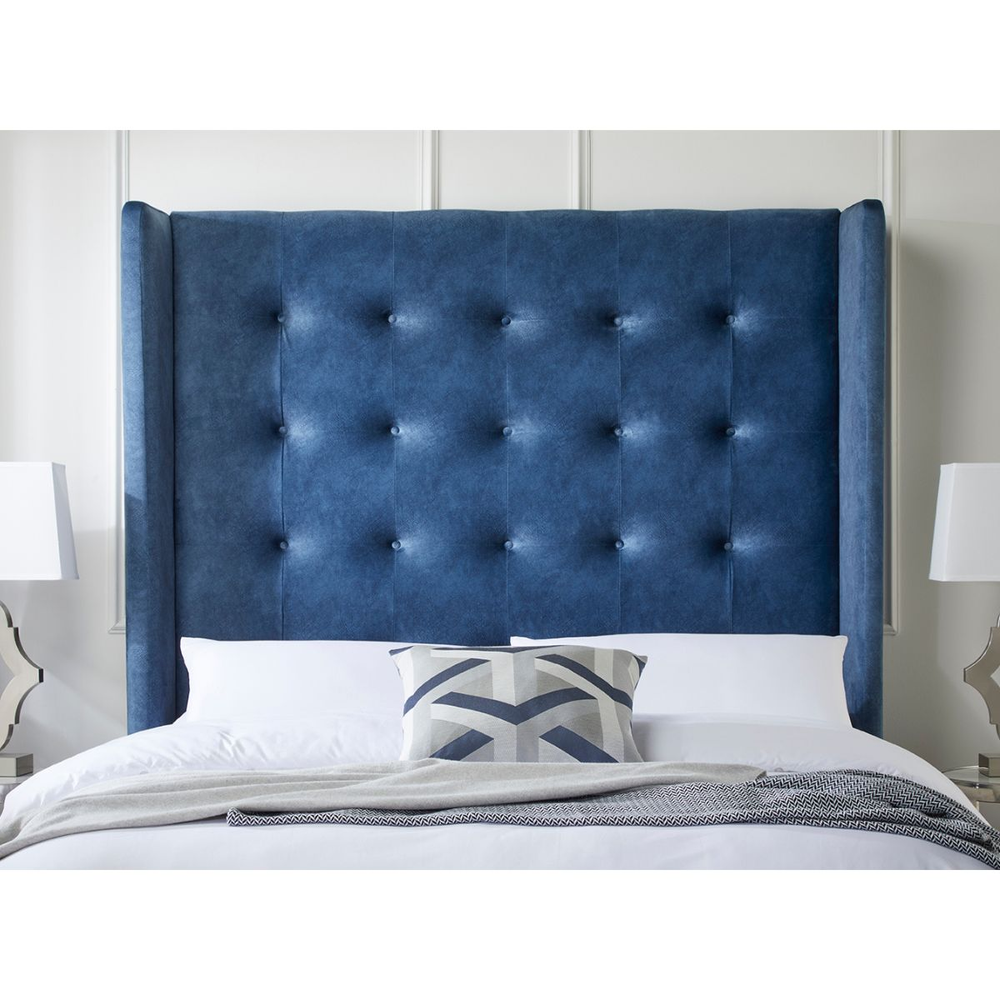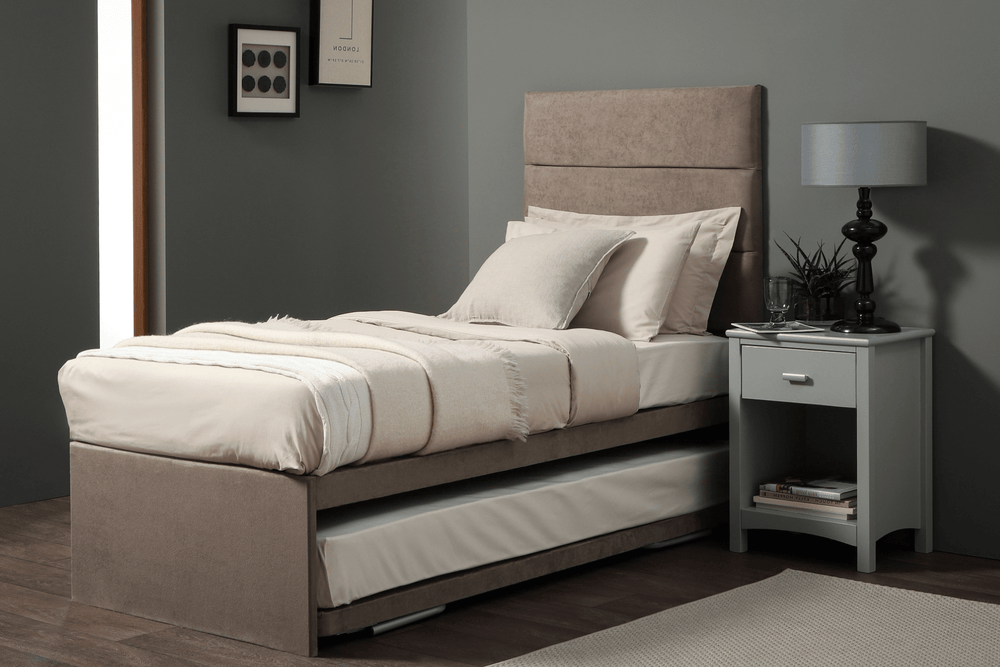Struggling to fall or stay asleep is an age-old issue that we’re all likely to experience at some point in our lives. Whether you’re preoccupied with worrisome situations, excited for an upcoming event, or have a pet or children who have waged war on sleep, sleeplessness and lack of a good night’s rest is never a fun thing to experience.
However, a handful of UK cities struggle with slumber more than others. We here at British Beds Direct have dug deep to discover which UK inhabitants are the most sleep deprived and what issues cause their lack of sleep, finally collating some top tips you can use to help develop better sleep habits. To determine which of the UK’s cities struggle the most with arriving in the land of nod, we took to Google to analyse the search habits of UK residents. We analysed sleep-aid-related terms people are searching for and how often they seek advice from the wonderful world wide web by looking at the volume of searches per capita over the past 12 months. So, if you’re interested in finding out more, read on.
Table of Contents
Most sleep-deprived city revealed
Top causes of sleeplessness
Tips for better sleep
Most sleep-deprived cities revealed
| Most Sleep-Deprived City | Sleep-Related Searches Per Capita |
| York | 1,606 |
| Newcastle | 1,349 |
| Swansea | 1,180 |
| Belfast | 1,132 |
| Cardiff | 1,075 |
| Sunderland | 1,027 |
| Brighton | 1,017 |
| Bristol | 1,006 |
| Liverpool | 976 |
| Manchester | 922 |
York tops the sleep depravity chart with a whopping 1,606 monthly searches per capita for queries such as “why can’t I sleep at night” and “what to do when you can’t sleep”, further standing above the UK average number of searches for both of those terms by over 110%. Newcastle, Swansea and Belfast have inched in just behind York, standing as some of the UK’s sleepiest cities with over 1,000 searches per capita for sleep-aid-related concerns.
Top causes of sleeplessness
We reached out to the UK public to discover exactly what issues keep them up at night the most.
1. Money worries/cost of living crisis
Of all the people we polled, 47.1% said that money worries and concerns around the current cost of living crisis keep them up at night and prevent them from getting a sound night’s sleep. It’s a completely understandable reason to be concerned, and resources are available online or at your local bank branch to help you combat any financial worries and get you back into a sound headspace that makes for a more peaceful slumber.
2. Children
The second biggest cause of sleep loss will come as no surprise to those of you who are parents. Children were cited by 29.4% of people as their leading cause of sleepless nights, either because they co-sleep with their kids or because they have young children who struggle to sleep through the night.
3. Health issues
This is another key cause of sleeplessness, affecting 20.6% of people we spoke to. There are countless health conditions, whether mental or physical, that cause insomnia and disrupted sleep as a result. Key issues such as sleep apnea, heart disease, asthma, anxiety, and more can all lead to poor sleep hygiene and sleep depravity, sometimes resulting in worsened health like a vicious cycle.
Tips for better sleep
If you’re among those across the UK and the world who are finding themselves struggling to reach REM, then let us lend a helping hand with some top tips for better sleep hygiene.
1. Establish a sleeping schedule
As best you can, try to go to bed and wake up at the same time each day. This will help keep your circadian rhythm (aka your body clock) in check, allowing your brain to release melatonin (the sleep hormone) around the same time each evening.
2. Create a bedtime routine
To go alongside the schedule you have set for yourself, it also pays to have a bedtime routine filled with activities that prepare you for sleep. You might have a shower, brush your teeth and settle down with a book for an hour before you hit the hay to wind down.
3. Limit screen time before bed
It’s no longer a secret that screens such as laptops, TVs and mobile phones emit blue light, which can prevent the brain from releasing melatonin and stop you from getting a good night’s rest. As part of your bedtime routine, it’s recommended that you limit your screen time for at least an hour before you head to bed, allowing yourself ample time to wind down, relax and get in the right state for slumber.
4. Make sure your bed is comfortable
Countless people are sleeping on beds that, whilst they may feel comfortable, aren’t offering the right support for their needs. If you’re struggling with settling into bed and are tossing and turning all night, this might be your issue. Finding the best mattress for your sleeping position, the best mattress for back pain, or the best mattress for hip pain is an integral part of sleep hygiene and can make or break a good night’s sleep.
5. Avoid caffeine, alcohol and nicotine late at night
Using substances like caffeine, alcohol and nicotine late at night can have a significant negative impact on your quality and quantity of sleep as they each cause a heightened level of cortisol (stress hormone) in the body, impacting your circadian rhythm. We hope these tips for better sleep will help you find a more sound slumber and leave you feeling more rested and ready to go. If you’re looking for more tips and tricks to getting the most out of your night’s rest, then perhaps you’d benefit from some of our other posts, such as our guide on how to take care of your mattress and our mattress comfort guide.

